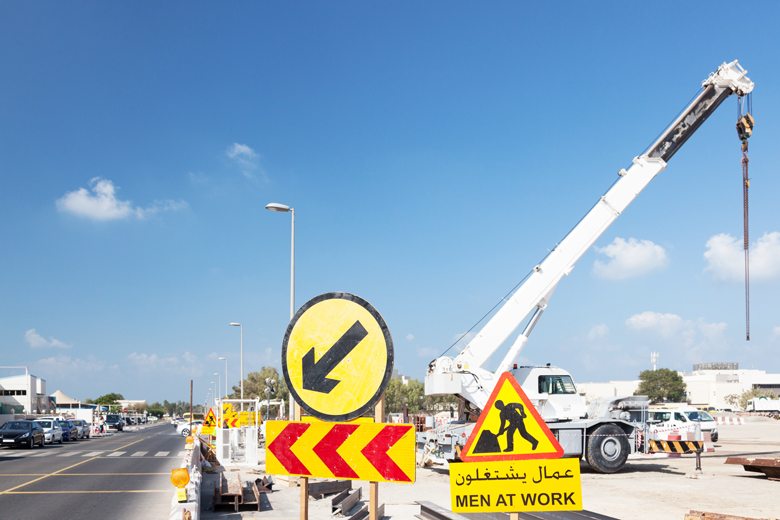

Governments will reposition their plans to allow for a new economic landscape in 2016
The coming year is set to be a challenging one for the GCC construction sector. Governments are repositioning their plans to allow for a new economic landscape as a result of a long-term fall in oil prices to levels significantly less than half of those experienced from 2011 to 2014.
While oil prices are expected to recover to about $50-$70 a barrel by the end of 2016, a climate of fiscal belt tightening will see reductions in capital spending and the return of budget deficits, which will put the brakes on the heavy investment spending the region has enjoyed since 2012.
Increased competition
Construction contractors in the GCC are facing increased competition as a result of a slowdown in project spending and delays to project timelines. They are also facing cash flow challenges as project owners delay contract payments. Several large-scale contractors have announced job cuts and are restructuring to lower their cost base.
Increased focus on military and defence spending is also set to absorb significant finance as well as political focus, further reducing construction spending.

Project activity in the GCC
Project activity in the GCC
The combined value of contract awards on major construction and transport projects in the GCC in 2015 was about $88.3bn, down about 22 per cent on the $114bn awarded in 2014. In 2016, that value is projected to drop 1.5 per cent to $86.7bn, according to regional projects tracker MEED Projects.
Source: MEED Projects
About $1.1 trillion-worth of construction and transport projects were under execution across the GCC at the start of 2016, with a further $700bn at the planning and pre-execution stages. About $216bn of construction schemes in the region are under bidding or prequalification.
UAE decline
On a country level, in 2015 the UAE experienced its first decline in the value of construction contracts awarded since 2011, with awards falling about 31 per cent from 2014. MEED is forecasting a further 11 per cent decline in the value of UAE construction contract awards in 2016, to $23.2bn from $26.2bn in 2015.
Dubai has reaffirmed its commitment to infrastructure investment in its 2016 budget, which shows a 12 per cent increase in spending compared with 2015. Abu Dhabi has yet to confirm its 2016 spending plans. The UAEs federal budget for 2016 includes a 1.1 per cent reduction in government spending.
In Saudi Arabia, the total value of construction contract awards in 2015 was broadly the same as in 2014, although both were significantly down on the boom year of 2013, when Arriyadh Development Agency awarded $26bn of design-and-build packages on the Riyadh Metro, pushing the 2013 total to $51bn.
Big numbers
$1.1 trillion Value of GCC construction and transport projects under way
$216bn Value of GCC construction projects under bidding or prequalification
$88.3bn Forecast value of construction and transport awards in 2016
12 per cent Dubais budgeted increase in infrastructure investment
$28.7bn MEED forecast of construction and transport awards for 2016 in Saudi Arabia
MEED anticipates about $28.7bn of construction deals will be awarded in the kingdom in 2016, slightly up on 2015.
Saudi Arabias 2016 budget, announced on 28 December 2015, announced a year-on-year reduction in government spending, which will affect the projects market. Riyadh announced a 60 per cent cut in transport and infrastructure spending in 2016, to $6.4bn from $16.8bn in 2015. Major transport projects in the kingdom, including many rail and metro schemes, are facing delays.
Kuwait promising
Kuwait was the only GCC market to record a peak in contract awards last year. The country offers some of the regions best construction opportunities in 2016, with many of its $95bn of planned projects seen as essential to the countrys economic development.
Qatars construction and transport industry continues to be highly active as it drives towards its Fifa World Cup 2022 deadline, with 63 per cent of its planned schemes in the execution phase. Construction contract awards in 2015 totalled $19.9bn, broadly in line with 2013 and down on 2014.
Despite announcing its intention to run its first budget deficit in 15 years in 2016, Doha said it would continue to focus on major project investment in healthcare, education, transport and infrastructure. Government spending on schemes will increase in the coming 12 months to $25bn, up from $24bn in 2015.
Real estate awards drove Omans construction market in 2015, as government infrastructure spending tightened following realisation of the impact of low oil prices. Should the sultanate make awards on its rail scheme as planned, it could deliver a major increase in project awards in 2016 compared with 2015.
Contract awards in Bahrain, the GCCs smallest projects market, fell 47 per cent in 2015 to $1.7bn, compared with $3.1bn in 2014. This is still higher than any other year since 2010, however. Spending is expected to remain steady in 2016.
This article is an except from MEEDs Outlook for GCC Construction 2016 report. It provides a powerful and authoritative assessment of the prospects for construction projects in the region, and specific challenges and opportunities in the industry, including analysis of the top clients and contractors, trends, construction costs, and individual analysis of specific subsectors and their drivers in each GCC state. Click here for more details or to buy the report.
You might also like...

TotalEnergies to acquire remaining 50% SapuraOMV stake
26 April 2024

Hyundai E&C breaks ground on Jafurah gas project
26 April 2024

Abu Dhabi signs air taxi deals
26 April 2024

Spanish developer to invest in Saudi housing
26 April 2024
A MEED Subscription...
Subscribe or upgrade your current MEED.com package to support your strategic planning with the MENA region’s best source of business information. Proceed to our online shop below to find out more about the features in each package.








